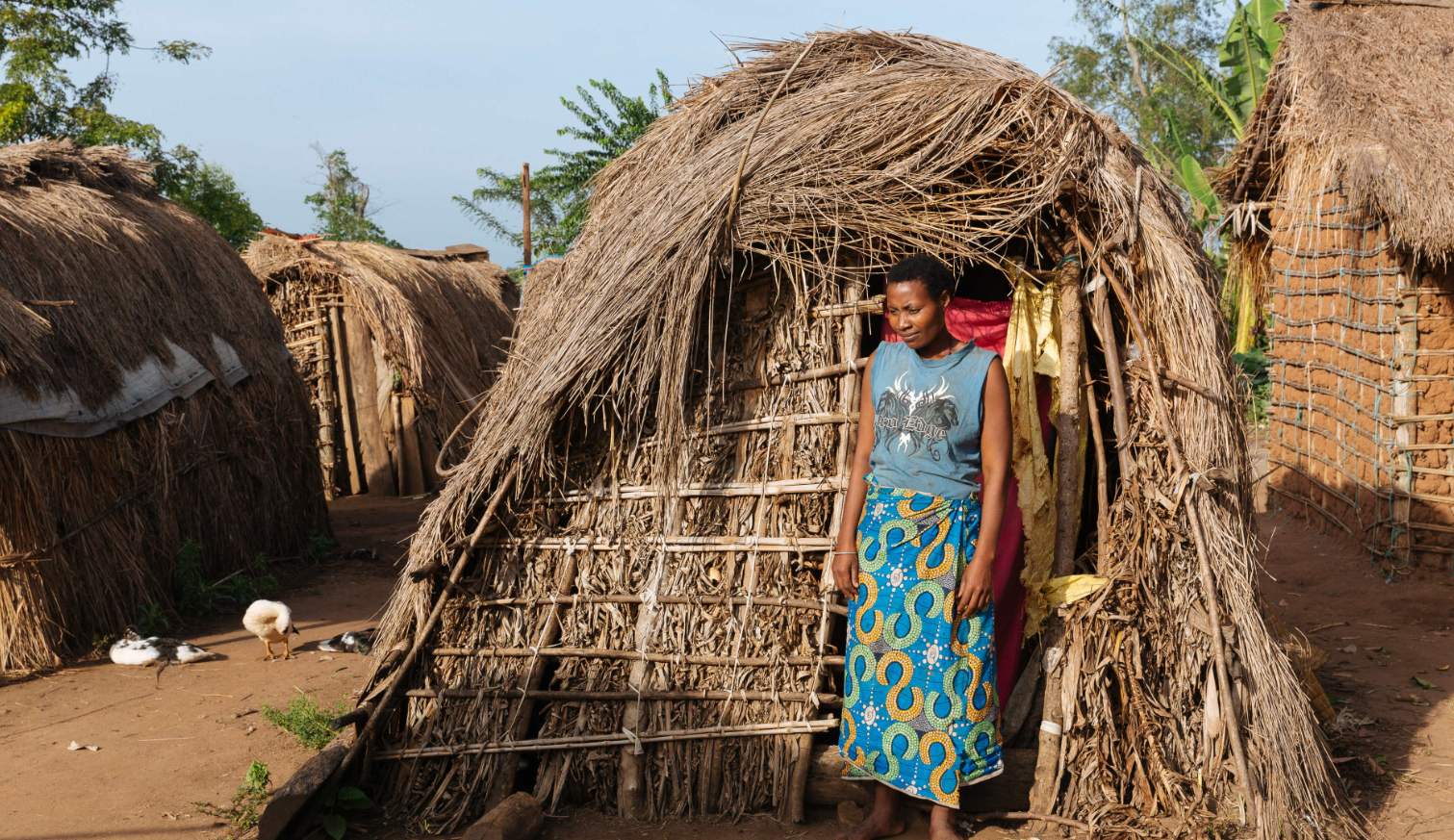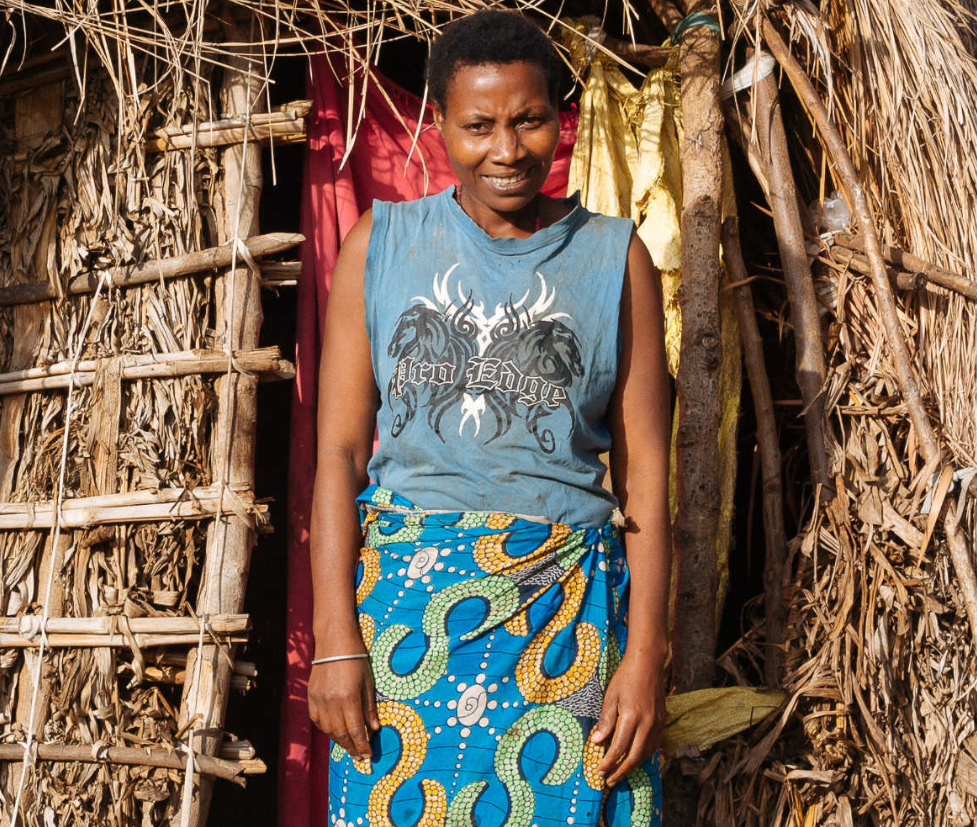Forgotten Women: How one woman is fighting against the brutal Uganda land grabs
The lives of ordinary women behind extraordinary stories
Your support helps us to tell the story
From reproductive rights to climate change to Big Tech, The Independent is on the ground when the story is developing. Whether it's investigating the financials of Elon Musk's pro-Trump PAC or producing our latest documentary, 'The A Word', which shines a light on the American women fighting for reproductive rights, we know how important it is to parse out the facts from the messaging.
At such a critical moment in US history, we need reporters on the ground. Your donation allows us to keep sending journalists to speak to both sides of the story.
The Independent is trusted by Americans across the entire political spectrum. And unlike many other quality news outlets, we choose not to lock Americans out of our reporting and analysis with paywalls. We believe quality journalism should be available to everyone, paid for by those who can afford it.
Your support makes all the difference.
Women are often disproportionately affected by global issues, from education to healthcare, work to sexual violence.
Yet even in the darkest of situations, there are real women working, learning, loving and laughing.
By looking at the lives of individuals you can see the reality behind broader issues more clearly.
It’s not easy to hear marginalised women through the noise, so Forgotten Women, a brand new Independent column, hopes to shed light on their stories.
One such woman is Patience.
A 30-year-old mother, with six children, doing everything she can to rebuild her life.
Patience’s husband, Isaac, died four years ago in a Ugandan land grab, which saw her family forcefully evicted so a sugar factory could be built on the land.
“One day, we were at home and we heard screams. There was so much violence. Guns, teargas and machetes. If you delayed they burned down your house. I heard screams everywhere and I started running. They took our goats, cows, chickens and our whole home.”
Patience was at her home in a village in Hoima with her husband and children when they came.
“We didn’t have any warning before it happened. When they came to my home, they fired bullets at us. My husband fell down and died.
“I was in shock. I saw the way he died, it will never leave me.”
The number of people who died that day out of the hundreds that were evicted is not known.
Forced evictions are devastating the lives of people across Uganda, with women losing the land they grow food on to feed their families.

Three-quarters of Ugandan women earn their living as farmers, yet they own as little as 20 per cent of the land, with many charities suggesting it is as low as 7 per cent.
Often women own land informally, making it far easier for investors to evict them.
The government leases land to investors, including foreign companies, leaving land owners with no choice and little compensation.
Examples of land grabbing have been recorded in more than 60 countries and as of 2011 up to 227 million hectares of land was thought to have been involved.
Patience now lives with her six children in a displacement camp, like many women who have been forced out of their homes.
“Life was the worst it had ever been when we first arrived. We were suffering so badly. We had no food at all. I have to go and do some hard labour every day to feed my children. It is never enough. They miss their father so much. We all do.”
Women like Patience have to spend hours every day farming the little land they have access to, and do labour-intensive jobs such as digging to earn money.
Water is a dangerous 30-minute walk away and the supply is sparse.
Malaria, diarrhoea and other health dangers are common in the camp from the lack of sanitation and nets, conditions which often stop Patience from being able to work.
Theft and harassment are also daily realities in these low-supply, high-desperation camps.
Patience did not have an education, and she is desperate to change that for her children, but since her husband died this has become a constant battle.
“I miss my husband every day. When he was around, we weren’t suffering and when we were sick he would help us. Sometimes I think I should die so I have no more suffering. The children keep me going. When I look at them, I am comforted.”
Out of her six children, she manages to send four to school, but she cannot afford to send her other son.

But an ecofeminist movement is growing in Uganda, with groups of women coming together to resist the land rush and better their lives.
Patience is part of one such group, called the National Association of Professional Environmentalists (NAPE).
“Some women told me about the Listening Club, run by NAPE so I got involved. I am not able to afford a radio but I go to other women’s huts to listen. We meet and talk about our issues and raise money so we can generate some income.
“I feel good about it. As a woman, I feel empowered as the Listening Club gives me a lot of information about my rights and to help me solve my problems. It has helped me to be strong.”
These women are developing their understanding of their rights so, along with a shared solidarity, they can stand against evictions.
With the constant threats of poverty and danger, life is undeniably hard for women like Patience, but groups like this are bettering the lives of women around the world.
Patience is starting to see a future for herself and her children, something she has not seen for a long time.
“I’ve seen a change in the women as we advise each other. We are stronger together and can get more done.”
Through women-led initiatives, with sharing and learning at the heart of causes, it seems that change can happen.
As Patience says herself, “When women come together, we get the strength to speak out and get our voices heard.”
For more information about NAPE, a partner of Womankind Worldwide, you can visit their website.
Illustration by Tom Ford.

Join our commenting forum
Join thought-provoking conversations, follow other Independent readers and see their replies
Comments